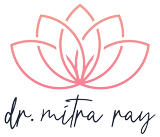One question I hear over and over again is: how can a person following a plant-based, whole-food diet get enough calcium, given that they’re not consuming dairy? It’s important to note that eating dairy or drinking milk is not actually the best way to get calcium in the diet. In fact, research suggests quite the opposite: As part of the ongoing Harvard Nurses’ Health Study, results published in 1997 showed that the women who had the highest intake of calcium from dairy products actually also had the highest risk of a fracture from thinning bones.1
note that eating dairy or drinking milk is not actually the best way to get calcium in the diet. In fact, research suggests quite the opposite: As part of the ongoing Harvard Nurses’ Health Study, results published in 1997 showed that the women who had the highest intake of calcium from dairy products actually also had the highest risk of a fracture from thinning bones.1
Equally important, however, is the result from a recent study which found that calcium supplements for the elderly are linked to increased risk for heart attack. Findings in the British Medical Journal led researchers to recommend that calcium supplements for treatment of osteoporosis should be reconsidered. This prompted an even larger study conducted by an international team of researchers who reviewed results and data from 12,000 patients. Heart attack risk increased 30% with regular calcium supplement use. Stroke and mortality risks also rose slightly.
The good news is that studies found that increased calcium consumption through diet alone – that is, via whole-foods – does not increase risks for heart attack or stroke. This is further evidence that we all need to be getting our vital nutrients from the food we eat, rather than from isolated supplements.
But shouldn’t we then be eating yogurt and drinking milk? While it’s true that dairy is high in calcium, the dairy part of that equation is unhealthy and, believe it or not, depletes calcium from the bones. Animal protein creates an acidic environment in the body, and the way that our bodies offset that acidity is by leaching calcium bicarbonate from the bones. That’s right: the protein in cheese and milk create acidity that actually strips your bones of calcium.
Taking an extra calcium supplement is dangerous, as discussed above, and eating more dairy in an attempt to get more calcium just means your body will leach more from your bones. Plus it delivers a higher renal acid load which can ultimately lead to kidney stones. Fruits and vegetables are the only foods that do not create an acid load for our kidneys, nor do they leach calcium from the bones to offset acidity.
So dairy and supplements aren’t the way to get the calcium that we need, or prevent osteoporosis. In fact, the only way to truly stave off osteoporosis is to do regular weight bearing exercise, which strengthens bones, ligaments, and muscles. Nothing else will make our bones stronger.
Which then begs the question: why should we bother eating calcium rich foods? While calcium is important for bones and teeth, it also aids in nervous system function, muscle contractions, and regulation of blood pressure. It’s critical for preventing and treating PMS, high cholesterol, obesity, and certain cancers. When we eat a variety of plants, we will naturally get all the calcium that we need. Furthermore, avoiding animal products and processed foods make it easy on the body to manage the acid/alkaline balance, and not resort to leaching of calcium stores in the bones. Bottom line – plants are full of bioavailable calcium and they help you retain the calcium you need.
The healthiest sources of calcium are found in plants. Some of the best include:
• White Beans
• Soy Beans or Soy Nuts
• Baked Beans
• Okra
• Spinach
• Collard Greens
• Mustard Greens
• Turnip Greens
• Kale
• Swiss Chard
• Bok Choy
• Broccoli
• Brussels Sprouts
• Sesame Seeds
• Almonds
• Oranges
• Tofu
• Rhubarb
Also, Juice Plus Complete® is an excellent source of dietary calcium. Make a shake with chocolate or vanilla Complete and your favorite non-dairy “milk” (rice, oat, almond, or hemp) if you need a quick snack, or as a pre-or-post-exercise drink.
1. D. Feskanich, W.C. Willet, M.J. Stampfer et al., “Milk, Dietary Calcium, and Bone Fractures in Women: A 12-Year Prospective Study”, American Journal of Public Health, 87, 1997, pp. 992-7
